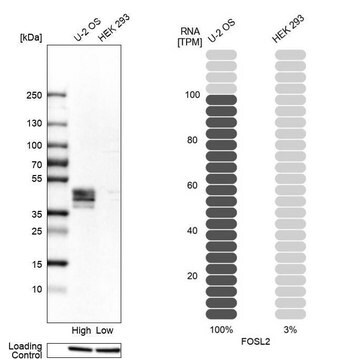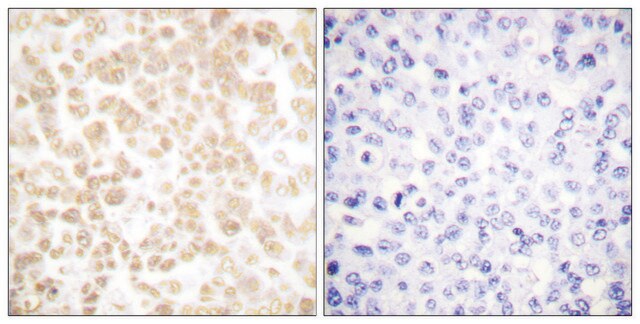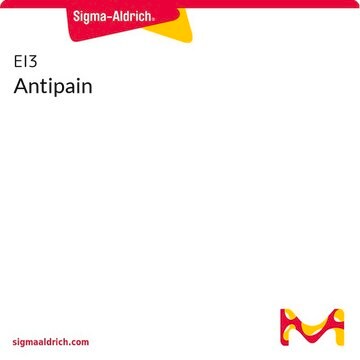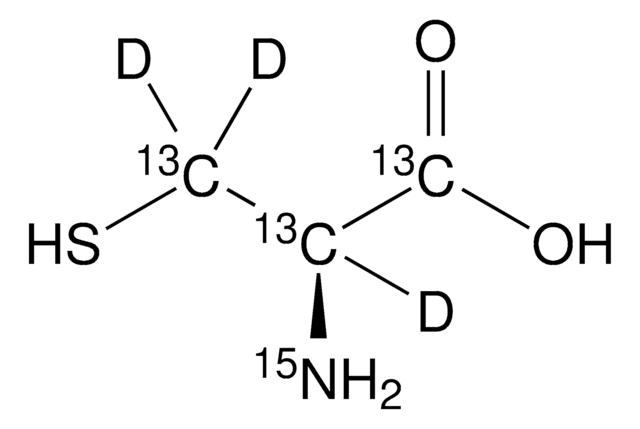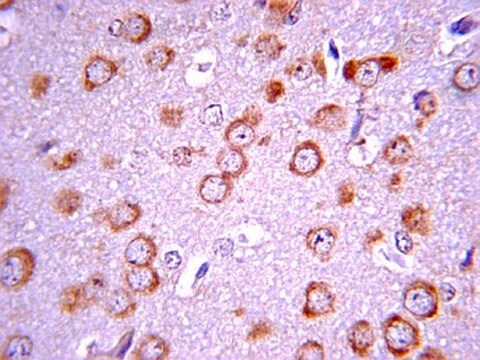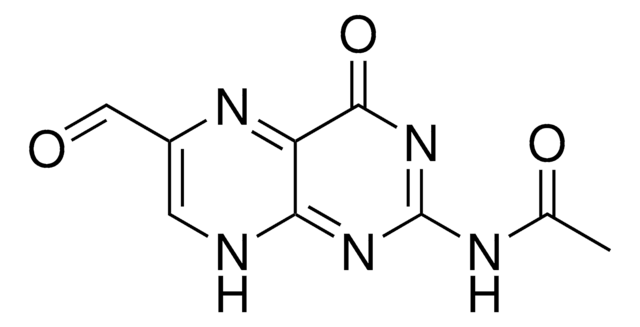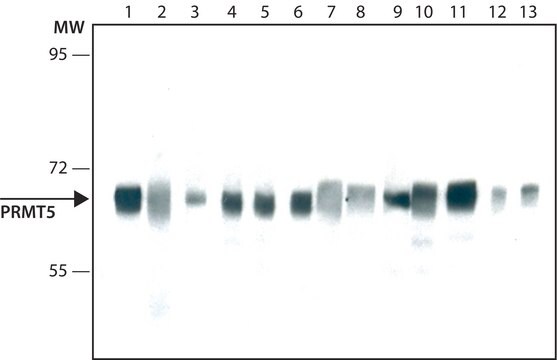MABS1261
Anti-FRA-2 Antibody, clone REY146C
clone REY146C, from rat
Synonyme(s) :
Fos-related antigen 2, FRA-2
About This Item
Produits recommandés
Source biologique
rat
Niveau de qualité
Forme d'anticorps
purified immunoglobulin
Type de produit anticorps
primary antibodies
Clone
REY146C, monoclonal
Espèces réactives
mouse
Technique(s)
ChIP: suitable
immunofluorescence: suitable
immunohistochemistry: suitable (paraffin)
immunoprecipitation (IP): suitable
western blot: suitable
Isotype
IgG2aκ
Numéro d'accès NCBI
Numéro d'accès UniProt
Conditions d'expédition
wet ice
Modification post-traductionnelle de la cible
unmodified
Informations sur le gène
mouse ... Fosl2(14284)
Description générale
Spécificité
Immunogène
Application
Western Blotting Analysis: A representative lot detected a FRA-2 upregulation in cultured mouse keratinocytes (mKCs) upon Ca2+-induced differentiation. ERK1/2 inhibitor FR180204 (Cat. No. 328007) reduced Fra-2 level in mKCs upon Ca2+ treatment (Wurm, S., et al. (2014). Genes Dev. 15;29(2):144-156).
Immunoprecipitation Analysis: A representative lot co-immunoprecipitated Ezh2 with Fra-2 from lysates of cultured mouse keratinocytes (mKCs) prior to, but not after, Ca2+-induced differentiation (Wurm, S., et al. (2014). Genes Dev. 15;29(2):144-156).
Chromatin Immunoprecipitation Analysis: A representative lot detected FRA-2 association with EDC promoters at conserved AP-1 consensus sites in cultured mouse keratinocytes (mKCs) under both basal and differentiation conditions (Wurm, S., et al. (2014). Genes Dev. 15;29(2):144-156).
Immunohistochemistry Analysis: Prior to antibody purification, the culture supernatant detected FRA-2 immunoreactivity in paraffin-embedded skin sections from wild-type, but not Fosl2-knockout mice (Courtesy of Dr. Erwin Wagner, Spanish National Cancer Research Centre (CNIO), Madrid, Spain).
Immunocytochemistry Analysis: Prior to antibody purification, the culture supernatant detected exogenously expressed murine FRA-2 (mFRA-2), but not mFRA-1 or mFosB in transfected HEK293T cells (Courtesy of Dr. Erwin Wagner, Spanish National Cancer Research Centre (CNIO), Madrid, Spain).
Signaling
Transcription Factors
Qualité
Western Blotting Analysis: 0.5 µg/mL of this antibody detected FRA-2 in 10 µg of MEF1 cell lysate.
Description de la cible
Forme physique
Stockage et stabilité
Autres remarques
Clause de non-responsabilité
Vous ne trouvez pas le bon produit ?
Essayez notre Outil de sélection de produits.
Code de la classe de stockage
12 - Non Combustible Liquids
Classe de danger pour l'eau (WGK)
WGK 1
Point d'éclair (°F)
Not applicable
Point d'éclair (°C)
Not applicable
Certificats d'analyse (COA)
Recherchez un Certificats d'analyse (COA) en saisissant le numéro de lot du produit. Les numéros de lot figurent sur l'étiquette du produit après les mots "Lot" ou "Batch".
Déjà en possession de ce produit ?
Retrouvez la documentation relative aux produits que vous avez récemment achetés dans la Bibliothèque de documents.
Notre équipe de scientifiques dispose d'une expérience dans tous les secteurs de la recherche, notamment en sciences de la vie, science des matériaux, synthèse chimique, chromatographie, analyse et dans de nombreux autres domaines..
Contacter notre Service technique